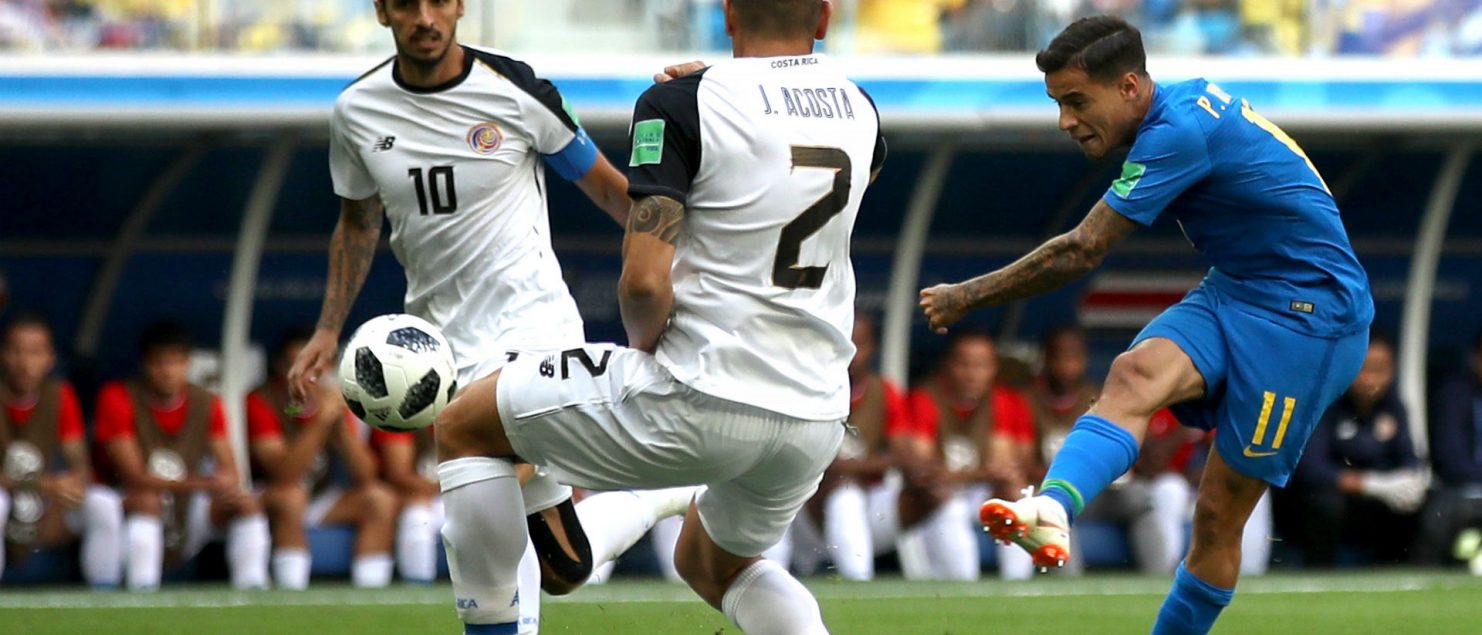Russia’s Cellar Dwellers: #2-Costa Rica
The reason Germany are ranked lower than Costa Rica is because of expectations: while many expected the reigning World Cup winner to challenge for the World Cup, few expected the reigning World Cup Cinderella team to advance to the knockout round. Granted, it wasn’t the hardest group between Serbia, Brazil, and Switzerland, but the odds were stacked against the Ticos, who had finished 2nd in CONCACAF qualifying with 16 points. If they were to advance past the group stage, it would take another miracle, the kind of miracle that saw the 2014 Ticos reach within a penalty shootout of the semi-finals.
In the first match, Costa Rica lost a gritty match to Serbia, Costa Rica failed to attack or remotely threaten Serbia’s defense. Sure, they managed to soak up pressure, but they never managed to retain possession or create quality chances in the final third. This lack of creativity was exacerbated by the fact that manager Óscar Ramírez decided to go with Cristian Gamboa and Bryan Oviedo to protect his back three, as well as the conservative double pivot of David Guzmán and Celso Borges. Perhaps a back four, or perhaps a more offensive midfield would have found more luck going forward than simply counter-attacking. These staunchly defensive tactics, as well as the decision to bench Kendall Walston, Joel Campbell and Daniel Colindres, spelled a recipe for disaster for Costa Rica’s chances to get a goal.
As Costa Rican journalist Jorge Caamaño put it, “The World Cup was decided in the first game.”
A glorious free kick from Aleksandr Kolarov saw Serbia win 1-0, but between a magnificent performance from Sergej Milinković-Savić and a quality performance between Aleksandar Mitrović, who performed well apart from missing two sitters, Serbia shoud’ve won by at least two goals more. The next match would see Costa Rica go up against one of the tournament favorites in Brazil, and they would need at least a draw to stay alive in Group E.
Costa Rica came with essentially the same park-the-bus routine, which saw attacking midfielders Bryan Ruíz and Johan Venegas dropping deep to defend. They aimed to sit back, yet failed to deal with the coordinated movements of Gabriel Jesus and his attacking midfielders: when Jesus dropped back to receive and played it over the defense to Philippe Coutinho and Neymar Jr, Costa Rica’s defenders were unsure whether to focus on Jesus or Coutinho/Neymar. Along with Brazil’s ferocious pressing, and Costa Rica’s transition-based offense, Costa Rica attempted to park the bus the entire 90 minutes, and when Douglas Costa came on and when Brazil kept attacking, Costa Rica just dropped deeper to defend. Their forced long balls, as well as their failure to stimulate organize build-up, saw Costa Rica finish with zero shots on target.
Costa Rica held strong with a 5-4-1, with one attacker tending to stay high, and even though they failed to commit numbers forward, they prevented Brazil from finding space in behind the defense, partly due to their narrow, compact midfield block. Even if they did find space behind the defense, they would then fail to get past the heroic Keylor Navas, who kept his side in the game as the match wore on.
Los Ticos were on course for a point as the game entered extra time, but in the 91st minute, Philippe Coutinho sprinted into the box to put Brazil ahead. Minutes later, Neymar would seal the victory with a volley. Table standings at the end of the second match-day: 1. Brazil 4 points.2. Switzerland 4 points, 3. Serbia 3 points, Costa Rica 0 points. The clock had not struck midnight yet, but Costa Rica’s attempt at a Cinderella Story was over.
Their match against Switzerland, at least on paper, looked like a dead rubber at first, with Costa Rica already out of the World Cup, and with Switzerland just needing one point to advance to the knockout round. Yet despite being already eliminated, Costa Ria showed heart to fight back from a goal deficit twice. Between Costa Rica’s first goal of the tournament and Bryan Ruíz’s 93rd minute equalizer, Los Ticos ended their World Cup campaign on somewhat of a high note.
After the Costa Rican football association decided not to renew Óscar Ramírez’s contract, it was clear that Costa Rican football is ready for a change. However, with several fundamental pillars of Costa Rican’s golden generation still having to play key roles in the team, and with no abundance of talent on deck, making that change is easier said than done.
By: Zach Lowy
